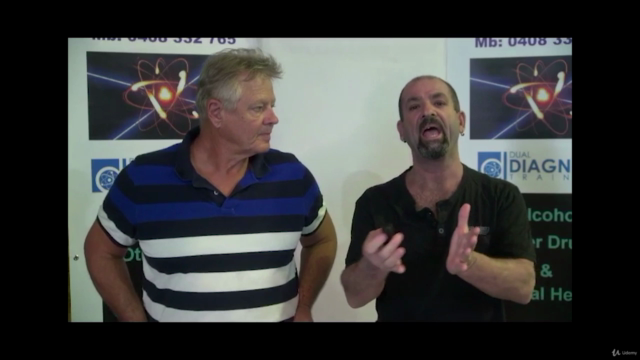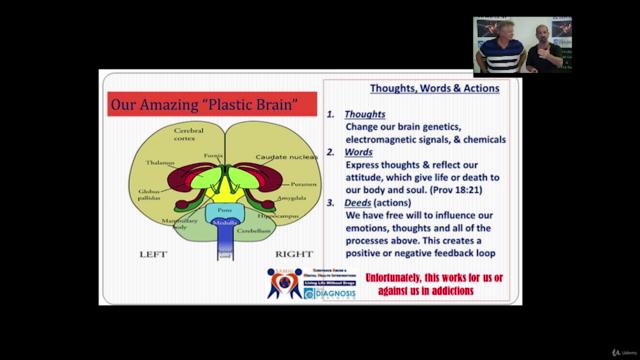Addiction & Mental Health (Dual Diagnosis) Integrative 12hrs

Why take this course?
🎓 Advance Your Skills with Addiction & Mental Health (Dual Diagnosis) Integrative Training
Welcome to S.A.M.H.I. Dual Diagnosis Advanced Training!
Hey there, and welcome to our Self Paced 12 hour S.A.M.H.I. Advanced Dual Diagnosis Training (SAMHII). This is the next step in your professional development journey after completing our 'Chemically Speaking Two' (Brief Intervention) program. 🎞️✨
Why Choose S.A.M.H.I. Dual Diagnosis Training?
This comprehensive course, launched in June 2018, is designed to equip you with the skills and knowledge to address substance abuse and mental health issues effectively. It mirrors the extensive 2-day advanced training delivered live across Australia, offering an integrative, holistic framework that aligns with best practices in the Alcohol & Other Drugs (AOD) and Mental Health sectors.
Course Overview
🚀 Key Features:
- Tax Deductible: This training is tax deductible as a work-related expense. 🧾
- Continuing Professional Development (CPD): Earn 12 points of CPD for your professional peak body (APS, ACA, AASW, CPA, PACFA, ACWA, etc.).
- Certificate of Attendance: Obtain a certificate from Udemy upon completion at the promotional rate.
- Certification from Optimal Health Group: For those requiring a different certificate, enroll and pay the difference between the promotional rate and $195. Contact george@dualdiagnosistraining.com.au for details.
Course Structure
📚 Modules Breakdown:
Module 1: Drugs & Effects
- Cycle of Addiction ℹ️
- Alcohol 🍷
- Drink & Drug Driving 🚔
- Tobacco 🚫
- Cannabis 🌿
- Stimulants (Speed, Ice, Ecstasy, Cocaine) ⚡
- Inhalants (volatile substances) 🛻
Module 2: Addictions & Mental Health
- Dual Diagnosis 🧠
- Integrative Holistic Model 🌐
- Needs & Underlying Issues that drive addictions 🤔
Module 3: Harm Minimisation & Optimal Health
- Pharmacotherapies 💊
- Orthomolecular Science, Functional Medicine & Optimal Health 🍎
Module 4: Neuropharmacology & Neurophysiology (Brain Works)
- Neuroplasticity 🧠
- Neurotransmitters 💥
- Psychosis vs Dissociation 🤯
- Psychospirituality 🌈
Module 5: Trauma Model & Keys to Treatment
- Guilt vs Shame 🙇♂️ vs 💰
- Dealing with ambivalence 🤷♀️
Module 6: Brief & Early Intervention and Tripod of Support
- Stages of Change 🌱
- Costs vs Benefits – doing a brief intervention ✅
Who Is This Course For?
This self-paced course is perfect for professionals in the health sector, counsellors, social workers, psychologists, and anyone interested in enhancing their understanding of dual diagnosis and its treatment. It will also empower you to run effective family support groups and stay updated with evidence-based best practices from an integrative holistic perspective.
Get Started Today!
Embark on your journey to becoming a dual diagnosis expert with SAMHII. With its self-paced format, you can learn at your own pace and convenience. Don't miss out on this opportunity to advance your skills and knowledge in the field of addiction and mental health care. 🚀
Enroll now and take a significant step towards mastering dual diagnosis treatment with the latest evidence-based practices. Your professional growth awaits! 🌟
Course Gallery




Loading charts...
Comidoc Review
Our Verdict
The Addiction & Mental Health (Dual Diagnosis) Integrative course offers a deep dive into the complexities of addiction, substance abuse, and their relationships with mental health. With an engaging instructor and thorough content spanning neurobiology to psychospirituality, it is both comprehensive and relatable. Although some references could be more up-to-date, and visual aids alongside case studies would enrich the learning experience further, learners are still left with valuable insights and understanding of integrative approaches for handling both addiction and mental health issues.\n\nBy incorporating recent research and adding practical examples or case studies, this course could elevate from its already high standard. It holds immense potential as a go-to resource for anyone looking to gain in-depth knowledge on the intricate interplay of addiction and mental health—be it professionals seeking to bolster their expertise or individuals dealing with personal struggles. Despite minor areas for improvement, this course remains an essential, engaging, and insightful exploration that deserves recognition.
What We Liked
- The course is **comprehensive**, covering a wide range of topics from the cycle of addiction to pharmacotherapies, neuroplasticity, and trauma model.
- It is **personable** and **relatable**. The instructor shares his experiences and insights in an engaging manner, making complex topics easier to understand.
- Provides a **holistic perspective**, addressing addiction not just as a standalone issue but also linking it to mental health, spirituality, and neurobiology.
- The course is **well-structured** with a clear flow, enabling learners to follow along easily and consolidate their understanding.
Potential Drawbacks
- Some references in the course are somewhat **outdated**. Learners might benefit from more recent studies and materials to supplement their learning.
- Lacks visual aids such as diagrams for certain topics, which would have been helpful for learners who prefer visual representations when understanding complex concepts.
- Limited case studies. Though the instructor shares personal experiences, more real-life cases would provide a better context for the application of course materials.
- While it is great that the instructor promotes integrative & holistic approaches, there are some instances where it can feel slightly **moralistic** and focused on **individual control over thoughts and emotions**, which may not resonate with every learner.